当前城市:淄博[切换]
- 手机雅思无忧

扫码登录
雅思考试主要是通过对考生听、说、读、写四个方面英语能力的考核,综合测评考生的英语沟通运用能力,实现“沟通为本”的考试理念。对于雅思考生来说,也有很多考试难点和政策盲区需要帮助解答。今天雅思无忧网小编准备了雅思课外读物--Why kids cannot sit still in school?,希望通过文章来解决雅思考生这方面的疑难问题,敬请关注。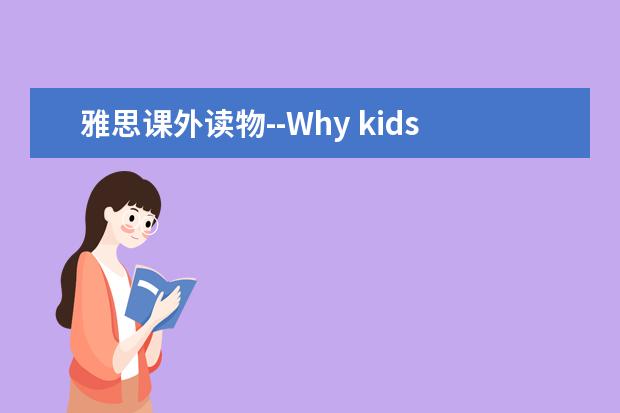
摘要:今天要跟大家分享的雅思阅读素材题目是“Why so many kids can’t sit still in school today”为什么很多小孩子在学校坐不住?小孩子坐不住千万不能掉以轻心,很多家长认为小孩子调皮是正常的,但要注意隐藏的是“多动症”问题哦!
这篇雅思阅读素材是要跟大家分享关于“小孩子多动症”的话题。不少年轻父母揪心于自己的孩子在学校坐不住(keep fidgeting),纷纷求救于医生,担忧孩子是否得了多动症(ADHD)。本文作者是专业儿科治疗师,却反其道而行之,认为多数情况下,孩子坐不住的原因不是运动太多,而是运动太少的缘故!“为了让孩子学习好,他们得学会集中注意力;为了让他们集中注意力,先让他们动起来!”
A perfect stranger pours her heart out to me over the phone. She complains that her 6-year-old son is unable to sit still in the classroom. The school wants to test him for ADHD (attention deficit and hyperactivity disorder注意力缺陷多动障碍,即小儿多动症). This sounds familiar, I think to myself. As a pediatric(儿科的) occupational therapist(治疗专家), I’ve noticed that this is a fairly common problem today.
The mother goes onto explain how her son comes home every day with a yellow *iley face. The rest of his class goes home with green *iley faces for good behavior. Every day this child is reminded that his behavior is unacceptable, simply because he can’t sit still for long periods of time.
The mother starts crying. “He is starting to say things like, ‘I hate myself’ and ‘I’m no good at anything.’” This young boy’s self-esteem(自尊) is plummeting(急剧下降) all because he needs to move more often.
Over the past decade, more and more children are being coded as having attention issues and possibly ADHD. A local elementary teacher tells me that at least eight of her twenty-two students have trouble paying attention on a good day. At the same time, children are expected to sit for longer periods of time. In fact, even kinder garteners are being asked to sit for thirty minutes during circle time at some schools.
The problem:children are constantly in an upright position these days. It is rare to find children rolling down hills, climbing trees, and spinning in circles just for fun. Merry-go-rounds(旋转木马) and teeter-totters(跷跷板) are a thing of the past. Recess times(课间休息时间) have shortened due to increasing educational demands, and children rarely play outdoors due to parental fears, liability issues(责任问题), and the hectic(繁忙的;发热的) schedules of modern-day society. Let’s face it: Children are not nearly moving enough, and it is really starting to become a problem.
I recently observed a fifth grade classroom as a favor to a teacher. I quietly went in and took a seat towards the back of the classroom. The teacher was reading a book to the children and it was towards the end of the day. I’ve never seen anything like it. Kids were tilting(使倾斜;翘起)their chairs back at extreme angles, others were rocking their bodies back and forth, a few were chewing on the ends of their pencils, and one child was hitting a water bottle against her forehead in a rhythmic(有节奏的) pattern.
This was not a special-needs classroom, but a typical classroom at a popular art-integrated charter school(公立学校之外的*特许学校). My first thought was that the children might have been fidgeting(躁动不安) because it was the end of the day and they were simply tired. Even though this may have been part of the problem, there was certainly another underlying(潜在的,更深层次的)reason.
We quickly learned after further testing, that most of the children in the classroom had poor core strength(中枢肌肉力量)and balance. In fact, we tested a few other classrooms and found that when compared to children from the early 1980s, only one out of twelve children had normal strength and balance. Only one! Oh my goodness, I thought to myself. These children need to move!
Ironically, many children are walking around with an underdeveloped vestibular (balance) system(前庭平衡系统) today–due to restricted(受限制的) movement. In order to develop a strong balance system, children need to move their body in all directions, for hours at a time. Just like with exercising, they need to do this more than just once-a-week in order to reap the benefits(获益). Therefore, having soccer practice once or twice a week is likely not enough movement for the child to develop a strong sensory system.
Children are goingto class with bodies that are less prepared to learn than ever before. With sensory systems not quite working right, they are asked to sit and pay attention. Children naturally start fidgeting in order to get the movement their body so desperately needs and is not getting enough of to “turn their brainon.” What happens when the children start fidgeting? We ask them to sit still and pay attention; therefore, their brain goes back to “sleep.”
Fidgeting is a real problem. It is a strong indicator that children are not getting enough movement throughout the day. We need to fix the underlying issue. Recess times need to be extended and kids should be playing outside as soon as they get home from school. Twenty minutes of movement a day is not enough! They need hours of play outdoors in order to establish a healthy sensory system and to support higher-level attention and learning in the classroom.
In order for children to learn, they need to be able to pay attention. In order to pay attention, we need to let them move.
Vocabulary
Pediatric 儿科的
Therapist 治疗师
Self-esteem 自尊
Plummet 急剧下降
Recess time 课间休息时间
Liability 责任
Hectic 繁忙的;发热的
Tilt 倾斜;翘起
Rhythmic 有节奏的
Fidget 烦躁不安
Underlying 潜在的;深层的
Restrict 限制
Reap the benefits 获益
本文观点选自“唐老雅”,不代表本站立场,如有任何问题,请联系雅思中国网进行修改或删除。
文章来源于网络,如有侵权请联系我们,将会在第一时间处理 雅思大作文:newspapers are still the main source of news
雅思大作文:newspapers are still the main source of news
2020年雅思报考指南 雅思大作文题目:More a
2021年10月08日 14:32 “请坐” 可千万别说 “Please sit down”!没礼貌喔!!
“请坐” 可千万别说 “Please sit down”!没礼貌喔!!
雅思考试主要是通过对考生听、说、读、写四个方面英语能力的考核,综合测评考生的英语沟通运用能力,实现“
2022年12月20日 17:36 雅思写作热点话题:Video Games and Kids
雅思写作热点话题:Video Games and Kids
雅思考试主要是通过对考生听、说、读、写四个方面英语能力的考核,综合测评考生的英语沟通运用能力,实现“
2023年01月27日 12:24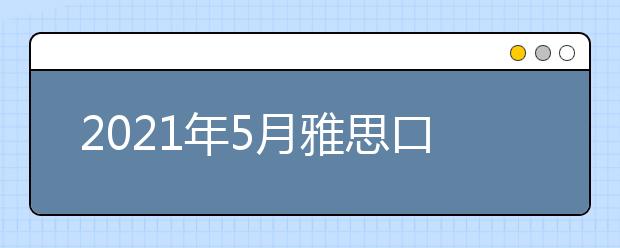 2021年5月雅思口语新题part1:Primary school答案
2021年5月雅思口语新题part1:Primary school答案
雅思考试主要是通过对考生听、说、读、写四个方面英语能力的考核,综合测评考生的英语沟通运用能力,实现“
2021年07月16日 19:23 2021年5月雅思口语新题part1:Primary school
2021年5月雅思口语新题part1:Primary school
雅思考试主要是通过对考生听、说、读、写四个方面英语能力的考核,综合测评考生的英语沟通运用能力,实现“
2021年07月16日 23:19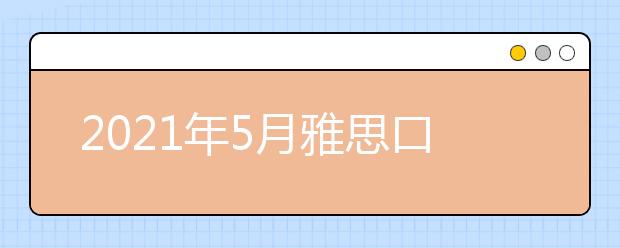 2021年5月雅思口语新题part1:Primary school答案
2021年5月雅思口语新题part1:Primary school答案
雅思考试每年1月、5月、9月都会进行雅思口语换题,备考雅思的小伙伴们肯定想知道本次5月更新了哪些新题
2021年07月30日 12:41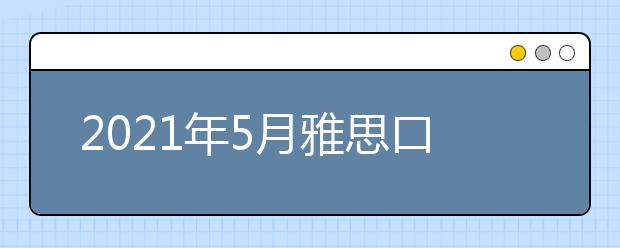 2021年5月雅思口语新题part1:Primary school
2021年5月雅思口语新题part1:Primary school
雅思考试每年1月、5月、9月都会进行雅思口语换题,备考雅思的小伙伴们肯定想知道本次5月更新了哪些新题
2021年07月30日 16:36 on the way to school 为啥school不用加冠词呢?
on the way to school 为啥school不用加冠词呢?
同学你好,加了冠词就就成了特指那么totheschool意思就是去这那个学校意思就不同了。
2021年08月12日 18:28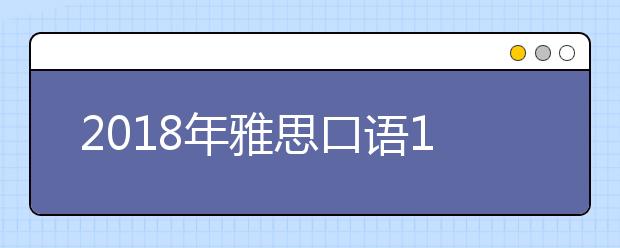 2018年雅思口语1月part1新题预测之:High school(高中)
2018年雅思口语1月part1新题预测之:High school(高中)
摘要:2018雅思口语预测来啦,1月的屠鸭大战尚未成功,各位烤鸭还要继续加油。本文预测新题:High
2021年08月13日 17:09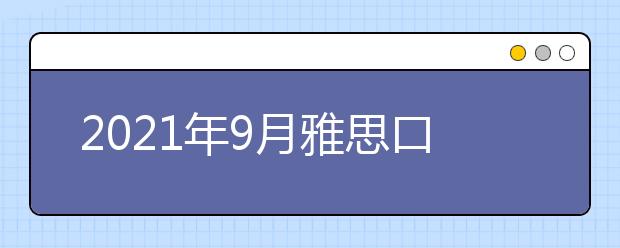 2021年9月雅思口语题part1:Primary school
2021年9月雅思口语题part1:Primary school
雅思考试每年1月、5月、9月都会进行雅思口语换题,备考雅思的小伙伴们肯定想知道本次9月更新了哪些新题
2021年09月09日 18:24